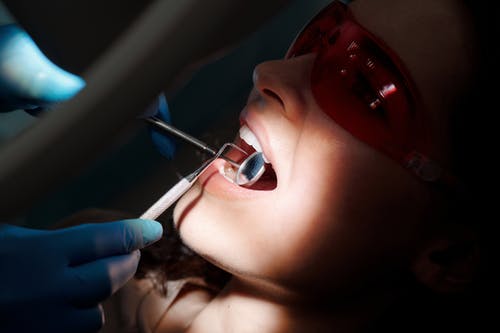Sleep apnea is a common problem affecting numerous people. It can cause brief breathing pauses while sleeping and cause dangerous health conditions, including heart problems, stroke, and hypertension, if left without treatment.
Sleep apnea can lead to loud snoring, choking, or gasping while sleeping, interrupting the person with the problem, their bed partner, or others close by.
This post will review the common sleep apnea signs you shouldn’t disregard and the available treatment options. By doing this, you can act proactively to improve your condition before it becomes serious and lead a more satisfying life.
Common Sleep Apnea Symptoms
Other sleep apnea symptoms are more noticeable than others, but here are some that should not be neglected:
Loud Snoring
Snoring frequently and loudly is the most common sleep apnea symptom. The snoring is often disrupted by pauses in breathing, followed by gasping or choking noises as the person tries to take a breath again. Make sure to explain this to a doctor at Aesthetic Dentistry of Fairfield if you experience these symptoms.
Teeth Grinding
Teeth grinding or bruxism might be a sign of sleep apnea because sleep apnea can interrupt your sleep cycle, causing numerous physical reactions, including teeth grinding. Their air passage becomes partially or completely blocked during sleep, causing them to stop breathing briefly until their brain realizes they need to breathe again, leading to disruptions in sleep. Cosmetic dentistry is not a direct treatment for sleep apnea, but it can be used as a complementary approach to help alleviate some of the symptoms associated with the condition.
Excessive Daytime Drowsiness
Excessive daytime drowsiness is another common symptom of sleep apnea. If you have this problem, you often feel exhausted and drowsy during the day because you need to have quality, relaxing sleep during the night. As a result, you may have difficulty concentrating, experience memory loss, and be less efficient in general.
Morning Headaches
A morning headache can be a sleep apnea symptom caused by lowered oxygen levels when sleeping. See a medical professional if you regularly suffer from morning headaches.
Irritation and Mood Changes
Sleep apnea can also trigger irritability, mood changes, and a lack of patience. This can cause problems in personal relationships and at the workplace. If you see this happening, make sure to inform your doctor.
Hypertension
Finally, sleep apnea can lead to high blood pressure. If your breathing is disrupted while sleeping, your blood pressure might increase. This can lead to hypertension, increasing the risk of heart problems and stroke.
Sleep Apnea Treatment Options
You can control your symptoms and lead a healthier life with the help of numerous sleep apnea treatments. The most common sleep apnea treatment options are listed below.
CPAP Therapy
This is the most common and effective solution for sleep apnea. A mask covering the mouth and nose keeps the airway open throughout this therapy. If you have sleep apnea, CPAP therapy is a good option to lower your risk of complications, improve the quality of your sleep, and lessen the number of times you wake up in the evening.
Oral Devices
Oral appliances are another treatment option for sleep apnea. These oral appliances keep the air passage open by repositioning the jaw and tongue when they are used. They are often advised for people with mild to moderate sleep apnea who can not endure CPAP therapy.
Lifestyle Changes
Making lifestyle changes can also be an effective way to manage sleep apnea. You can lower the extent of your symptoms by losing weight, quitting smoking, avoiding alcohol, and not using sedatives. Furthermore, sleeping on your side instead of your back can help to keep your air passage open throughout sleep.
Surgery
In severe conditions, surgery may be the only option. An operation can help open your airway by expanding and reshaping the structures around it. It is often recommended for people with serious sleep apnea who can not use other therapies. Click here to find out the best action to take.
Bottom Line
Sleep apnea is a severe condition that requires treatment to prevent serious health problems. Get medical treatment if you experience any of these common symptoms. Look for help and talk to your doctor about which treatment option suits you. The right treatment will help you get a good night’s sleep and feel relaxed and rejuvenated the following day, reducing your symptoms.











